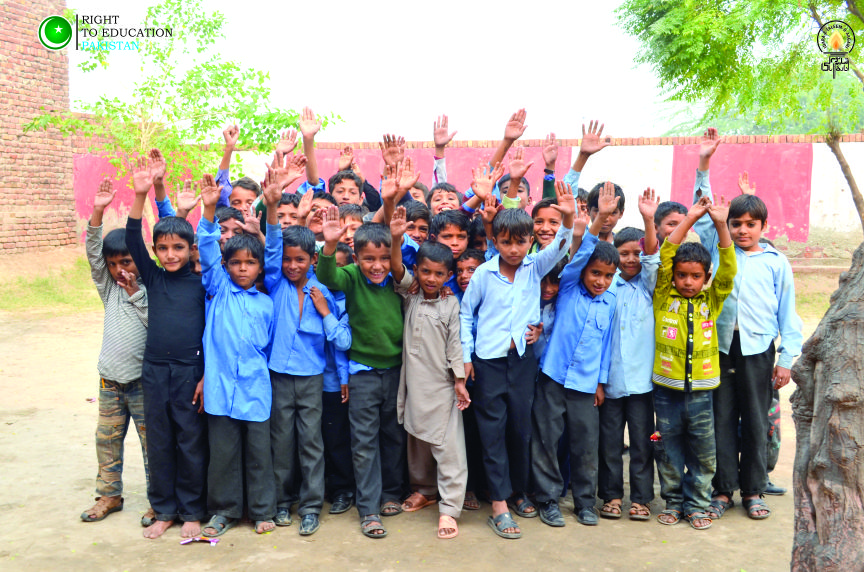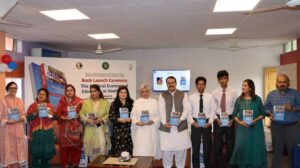The 23rd Prime Minister of Pakistan almost missed out on mentioning education in his maiden speech given his compelling actions for education in Punjab during his tenure as the Chief Minister. For how long will education, and above all the fundamental right to free and compulsory education await its calling in Pakistan? The track record of 75 years is poor. Each of the seven finalized Education policies promised universal primary education (UPE) as a target. In 2010, 12 years of education for all 5-16 year olds without discrimination was promised as a fundamental right enshrined in Article 25 A of the Constitution, which was further reinforced by the Sustainable Development Goals (SDGs 2030) and SDG 4 in particular, SDGs 2030 were embraced so wholeheartedly by the National Assembly in 2016. Today with perhaps more than 25 million children out of school, during COVID-19, the realization of Article 25 A will have to bid even more time if the continued ostrich syndrome to the fundamental right remains the norm. In 2022, we are poised for celebrations of 75 years of Pakistan, can there be merrymaking sans education and learning? Will it be 100 years of Pakistan, when we can actually celebrate the fundamental entitlement to ALL its children? If so, we need to embark on that highway to learning immediately without losing any time.
By 2017 all four provinces and Islamabad Capital Territory (ICT) had come up with the requisite laws for 25 A. After all the fundamental right plainly states that:
“The State shall provide free and compulsory education to all children of the age of five to sixteen years in such manner as may be determined by law.”
Five acts crafted and passed for right to education (2012-2017) range from 9 to 30 articles, some being more inclusive (ICT, Sindh & Punjab) than others (KP and Balochistan); however all have a strong common core of complete lack of implementation. The techno- bureaucrats are unified in their advice to parliamentarians to be stubbornly silent on implementation on the pretext that there is a severe shortage of resources, stagnation of budgets and/or capacity, or both! The fear is that if 25 A is seriously rolled out, then the state will be overburdened with even more litigations for not fulfillng a Constitutional Fundamental Right. Frankly this may not be a bad idea in our democracy. It is of grave concern that the impressively holistic “Punjab Right to Free and Compulsory Education Act 2014’ is still not notified. Almost 8 years on, it is fighting a gasping life, with possibilities of being snuffed out due to sheer lack of ownership, fear of implementation and accountability above all. Imagine this is in Punjab that has been known to have progressive province wide education reforms since 2002 through innovative evidence-based delivery approach resulting in better enrolment and quality compared to other provinces, with AJK and GB being ahead (ASER 2021). What hurts Punjab is its run away population growth, with more than 50% of the demographic burden of Pakistan. Thus, 9 to 14% out of school children, easily translate in above 10-12 million 5-16 years children, a big chunk of the country’s 25 million OOSC! For households in extreme and churning poverty, education deprivation is a generational curse especially when it is not on any party’s serious political actionable agenda. Maybe this will change in the next political iteration; may be education become a national building block.
Two of the 5 right to education acts are very poorly worded from KP (2017) and Balochistan (2014); there is dissonance between the acts and the ambition of reforms and sector plans currently being rolled out in the provinces. Why? This has been pointed out in several local education group meetings to KP government and through multiple letters to the Balochistan leaders, but the evidence-based communication falls completely on deaf ears? The lack of alignment between laws, the sector plans and implementation workplans is another major challenge. Sindh has shown tremendous grit in not just passing the act (2013) but also its elaborate Rules of Business (2015); however, the state of affairs on implementation remains disappointing as hugely reflected in its poor key indicators. What is also impressive is the resolve of the provincial decision makers in Sindh to do regular stock takes together with its key development partners. Sadly, great schemes end up in not much action when 8% of schools are without teachers and 72% primary schools have just one and two teachers! Balochistan, in spite of its innovations since the 90s on girls’ education including one of the first provinces to have the framework for ECE, not only excludes early years from the RTE Act 2014, but is misaligned with its own bold reforms and puts all the onus on parents for children being out of school rather than holding the government responsible? Why such flawed laws have been passed amidst progressive milestones, illustrating weak political will.
Khyber Pakhtoonkhwa (KP) has taken the bold road towards mainstreaming the newly merged districts of former FATA, that in the short term have depressed key indicators (ASER 2021), but in the medium to long term there is bound to be major progress province wide. KP is engaged in ground breaking reforms for quality, access and equity through strengthened school-based governance by empowering parents teachers councils (PTCs). However, this progress will remain under pressure due to a very flawed KP RTE Act 2017. It is a ditto copy of the Compulsory Primary Education Act 1996 (NWFP), mirrored after the Punjab Compulsory Primary Education Act 1994, yet another still born commitment for UPE. Why?
What is it that we are afraid of in Pakistan when it comes to right to education provisions in our constitution as a fundamental entitlement? Are our children so unimportant and their protection through quality education as a core pillar so undermined? Not only are we compromising the fate of 50% of our population for survival, development and protection, we are taking away their right to gender equality, dignity, livelihoods and happiness; the numbers are staggering, the consequences unacceptable for a sustainable Pakistan.
(All acts in The Blue book https://rtepakistan.org/wp-content/uploads/2019/04/Blue_Book.pdf)
Baela Raza Jamil
CEO Idara-e-Taleem-o-Aagahi (ITA)
Founder Pakistan Learning Festival (PLF)




